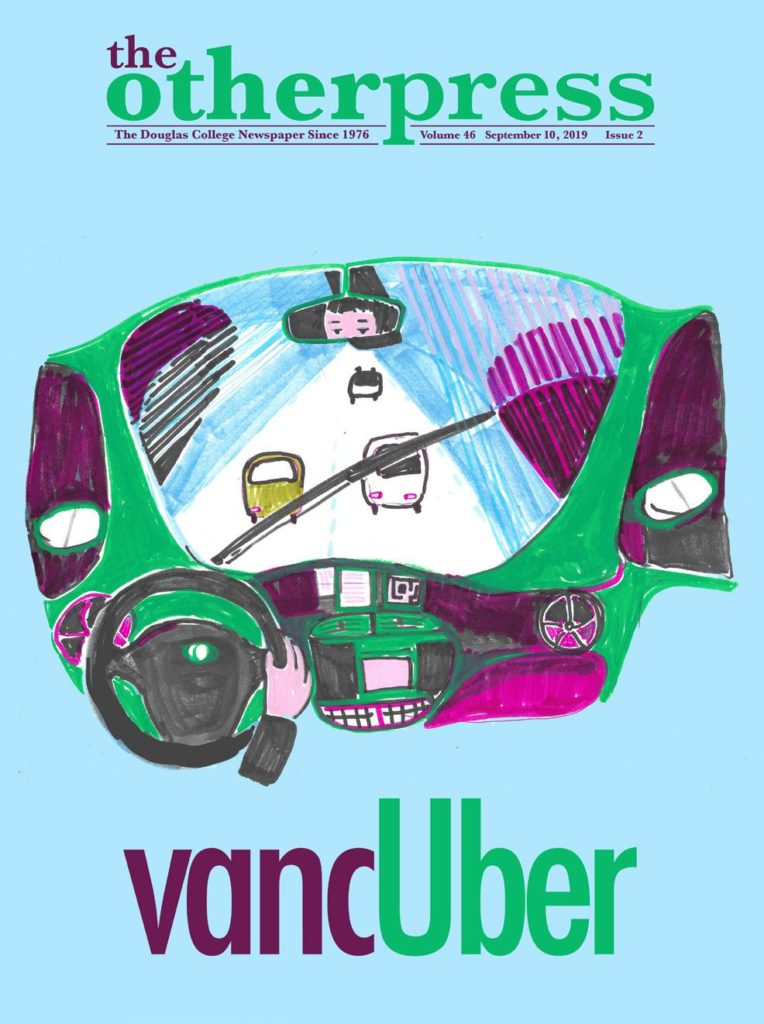
How do ridesharing companies fare for Vancouver?
By Jessica Berget, Editor-in-Chief
The question of whether Uber, Lyft, or any other ridesharing companies will come to Vancouver has been looming over everyone’s heads over the past few years. Uber in particular is a popular transportation method for many major cities—except of course, Vancouver.
But perhaps, not for much longer.
The answer to this question was finally answered as it was announced by Daily Hive that the Passenger Transportation Board will be accepting ridesharing service applications beginning September 3. Both Lyft and Uber sent in their application on the exact same day. With a six to eight week evaluation process, Uber’s Head of Western Canada, Michael Van Hemmen said he is “optimistic that Uber will be here for the busy holiday season,” in an interview with Global News. Haters of public transportation and Vancouver’s current cab services, now might be your time to rejoice.
The people of British Columbia have been constantly teased by the BC government with the potential of having a ridesharing company they can depend on for safe and easy transportation and that doesn’t break the bank—for a price.
Or shall I say, for a $3.35 starting fare.
The City of Vancouver has agreed to allow ridesharing to operate in the city under a few conditions. First of all, it will only operate in the Metro Vancouver area. According to a Global News article, an Uber press release said it “remains interested in service across BC, but the ‘proposed regulations are not conductive to operations in smaller municipalities.’” So far, Uber and Lyft are hoping to start their ridesharing services in Corridor. Meaning, if you live outside of this area, you may not get the services.
This is due to perhaps the most troublesome regulation to potential ridesharing employees—the licensing needed to operate as a driver in Vancouver. According to Daily Hive, in an email to Uber Eats drivers, Uber advised employees to get “road-ready” and to obtain their Class 4 licence. BC Transportation Minister Claire Trevana said safety is the main reason for this. Aaron Zifkin, managing director for Lyft Canada, said otherwise.
Zifkin said that the licensing regulation “will not improve safety but will increase wait times and benefit the taxi industry,” according to an article by The Georgia Straight. He also said, “Lyft does not currently operate ridesharing in any jurisdiction that requires drivers to change their driver’s licence to a commercial driver’s licence.” Only time will tell if his prediction is correct.
While may are excited about the prospect about ride-hailing in Vancouver, others are hesitant.
One of the many important concerns people bring up when talking about letting ridesharing companies operate in one’s city is, of course, safety. If you ask any person, they will tell you a story about one time a cab driver was creepy, aggressive or rude, or sometimes violent.
Letting a stranger into your car or getting into a stranger’s car is always going to be a gamble. They might be a creep, or a complete asshole, a perfectly decent person, or not even say a word to you. As someone who has taken many taxis in the wee hours of the morning, I have had mainly positive experiences with drivers, but I know many people have had the opposite. Admittedly, I do often think about how much easier a company like Uber or Lyft would be to have in the city, so I don’t have to choose from one of only a handful of cab companies in the city (all with less than two-star ratings). I’ve also wondered how successful ridesharing might be with instances in which taxis refuse to pick up drunk or intoxicated people, given people’s need to get a safe ride home.
In an article by Daily Hive, a taxi rider saw her concern when she saw a note on the driver’s screen instructing drivers not to pick up a drunk woman as she “cannot even stand up.” On an anecdotal note, a friend of mine once told me his friend got blocked by a taxi service because she got too drunk and threw up in a cab.
Another issue with ridesharing in the city is that there will be no limits on surge pricing. Meaning, ridesharing companies can up their fare prices during the busier commute time like rush hour or special events, possibly costing riders even more than a taxi.
The taxi service in Vancouver is not perfect, sure. However, only time will tell if the introduction of ridesharing companies will ease the tension for people without their own transportation, or only serve to make it worse.


